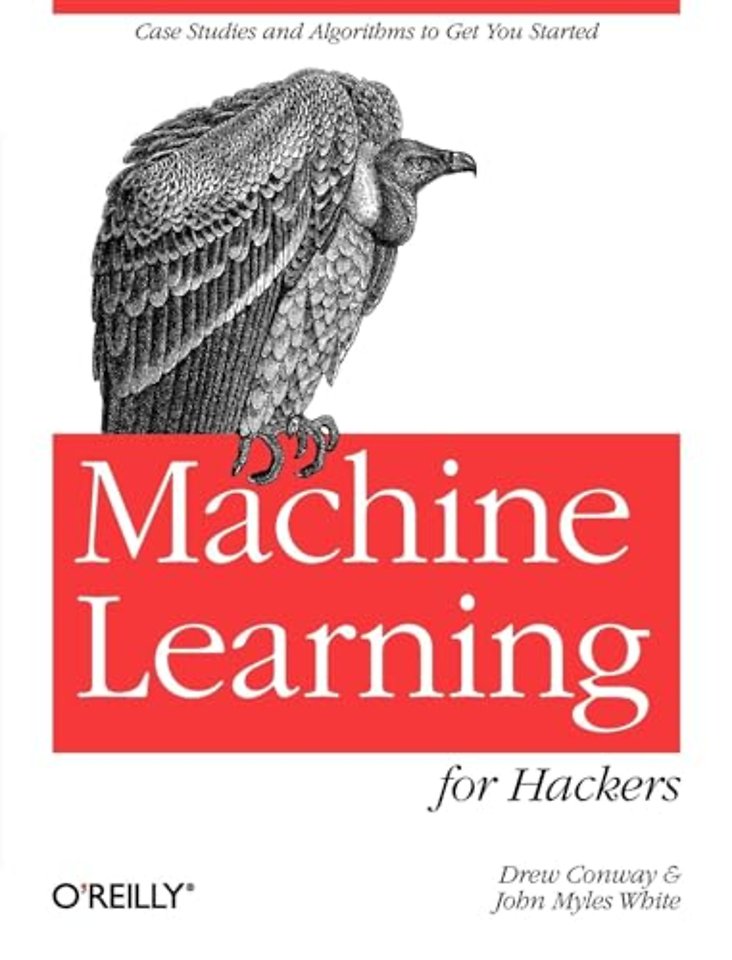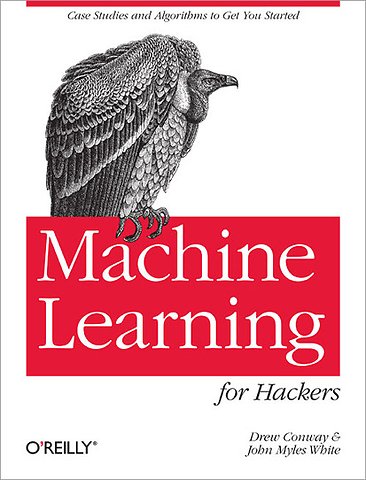


Drew Conway is a PhD candidate in Politics at NYU. He studies international relations, conflict, and terrorism using the tools of mathematics, statistics, and computer science in an attempt to gain a deeper understanding of these phenomena.
Meer over de auteursMachine Learning for Hackers
Case Studies and Algorithms to Get You Started
Samenvatting
If you're an experienced programmer interested in crunching data, this book will get you started with machine learning-a toolkit of algorithms that enables computers to train themselves to automate useful tasks. Authors Drew Conway and John Myles White help you understand machine learning and statistics tools through a series of hands-on case studies, instead of a traditional math-heavy presentation.
Each chapter focuses on a specific problem in machine learning, such as classification, prediction, optimization, and recommendation. Using the R programming language, you'll learn how to analyze sample datasets and write simple machine learning algorithms. Machine
'Learning for Hackers' is ideal for programmers from any background, including business, government, and academic research.
- Develop a naïve Bayesian classifier to determine if an email is spam, based only on its text
- Use linear regression to predict the number of page views for the top 1,000 websites
- Learn optimization techniques by attempting to break a simple letter cipher
- Compare and contrast U.S. Senators statistically, based on their voting records
- Build a "whom to follow" recommendation system from Twitter data
Specificaties
Over John Myles White
Inhoudsopgave
-R for Machine Learning
2. Data Exploration
-Exploration versus Confirmation
-What Is Data?
-Inferring the Types of Columns in Your Data
-Inferring Meaning
-Numeric Summaries
-Means, Medians, and Modes
-Quantiles
-Standard Deviations and Variances
-Exploratory Data Visualization
-Visualizing the Relationships Between Columns
3. Classification: Spam Filtering
-This or That: Binary Classification
-Moving Gently into Conditional Probability
-Writing Our First Bayesian Spam Classifier
4. Ranking: Priority Inbox
-How Do You Sort Something When You Don't Know the Order?
-Ordering Email Messages by Priority
-Writing a Priority Inbox
5. Regression: Predicting Page Views
-Introducing Regression
-Predicting Web Traffic
-Defining Correlation
6. Regularization: Text Regression
-Nonlinear Relationships Between Columns: Beyond Straight Lines
-Methods for Preventing Overfitting
-Text Regression
7. Optimization: Breaking Codes
-Introduction to Optimization
-Ridge Regression
-Code Breaking as Optimization
8. PCA: Building a Market Index
-Unsupervised Learning
9. MDS: Visually Exploring US Senator Similarity
-Clustering Based on Similarity
-How Do US Senators Cluster?
10. kNN: Recommendation Systems
-The k-Nearest Neighbors Algorithm
-R Package Installation Data
11. Analyzing Social Graphs
-Social Network Analysis
-Hacking Twitter Social Graph Data
-Analyzing Twitter Networks
12. Model Comparison
-SVMs: The Support Vector Machine
-Comparing Algorithms
Works Cited
Index
Anderen die dit boek kochten, kochten ook
Net verschenen
Rubrieken
- aanbestedingsrecht
- aansprakelijkheids- en verzekeringsrecht
- accountancy
- algemeen juridisch
- arbeidsrecht
- bank- en effectenrecht
- bestuursrecht
- bouwrecht
- burgerlijk recht en procesrecht
- europees-internationaal recht
- fiscaal recht
- gezondheidsrecht
- insolventierecht
- intellectuele eigendom en ict-recht
- management
- mens en maatschappij
- milieu- en omgevingsrecht
- notarieel recht
- ondernemingsrecht
- pensioenrecht
- personen- en familierecht
- sociale zekerheidsrecht
- staatsrecht
- strafrecht en criminologie
- vastgoed- en huurrecht
- vreemdelingenrecht





